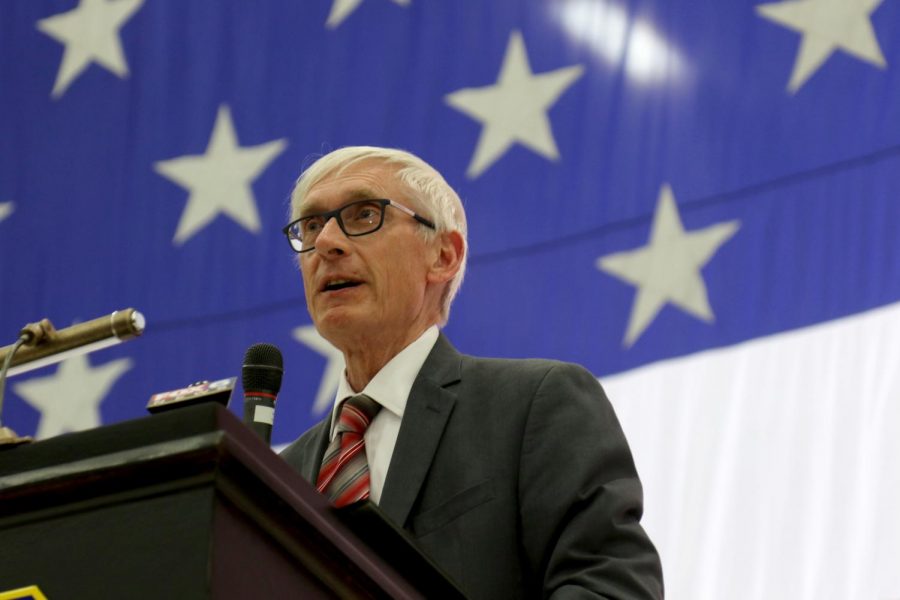In times of great change, uncertainty, crisis and conflict, one thing has remained a constant event in the United States: elections. Even amid the Civil War and the 1918 influenza outbreak, voters have gone to cast their votes at the polls.
However, the COVID-19 pandemic, which has brought the jobs, education and personal lives of so many to a standstill, has done the same to our democratic process. In a trend that first began with Louisiana, fourteen states have postponed their primaries — an inconvenient but necessary precaution.
Despite other states’ initiative and the clear risk in-person voting poses to people, Wisconsin is continuing with its April 7 election.
As of April 1, the Centers for Disease Control reported there to be 186,101 confirmed cases of COVID-19 in the US and 3,603 total deaths caused by the virus so far but these numbers are only expected to grow exponentially.
A March 26 Institute for Health Metrics and Evaluation report projected U.S. hospitalization and death rates from COVID-19 will likely peak in mid-April, with an estimated 2,200 deaths per day and a total of nearly 81,000 deaths over the pandemic’s course.
It is worth noting the IHME formulated these estimates with the assumption that the population continues to adhere to current shelter-in-place orders and social distancing guidelines. In the report, it was remarked that the expected totals could increase significantly if Americans do not follow such regulations.
A traditional in-person election would not only defy current recommendations issued by health experts and the federal government but it would also further exacerbate the spread of COVID-19.
Gathering in polling locations would inevitably expose voters and poll workers to the virus, sending more people to hospitals, which are already experiencing shortages of critical resources like protective masks, ICU beds and ventilators.
An exclusive or optional mail-in election would lessen exposure to the coronavirus, but many states lack the immediate infrastructure to organize this alternative option. In some cases, postponement would allow states enough time to arrange a plan and resources to do hold mail-in elections.
Alabama, for instance, which postponed its March 31 runoff election for the U.S. Senate to July 14, is using the additional time to make necessary provisions so it can expand mail-in absentee ballots to every voter.
Alabama is one among 17 states which restricts absentee ballots to those either disabled, ill or physically out of the area on election day. Due to coronavirus concerns, Alabama has since made an exception, allowing any voter to utilize an absentee ballot in the upcoming July 14 election.
Holding a traditional election under current conditions would essentially ask Americans to choose between protecting their health or exercising their civil liberty. Consequently, only providing Americans with an in-person opportunity to cast their votes is unfair because it would likely lead to lower voter turnout as people do not want to take the risk.
This may be similar to the lower turnout rate that occurred during the 1918 midterms when the Spanish flu was spreading throughout the U.S. According to data from the United States Election Project, turnout during that election cycle plummeted more than 10% from the previous two midterms.
Even in the midst of this pandemic, postponing an election should not be taken lightly. Since representation is chosen by vote, elections are the American people’s most direct way to hold the government accountable and be involved in the political process. During elections, people have the opportunity to remove representatives who have failed to act in their best interest while in office — something that otherwise doesn’t occur except in instances of impeachment.
It is then understandable why rescheduling an election may seem undemocratic as it could be perceived as withholding the peoples’ right to vote, but given extenuating circumstances, the reality may actually be the opposite: postponing primary elections could better preserve this right since voting would not come at the expense of someone’s health or wellbeing.
Despite public concern, Gov. Tony Evers is pressing on with Wisconsin’s April 7 election date.
However, Evers is advocating absentee ballots be issued to all 3.3 million registered voters in Wisconsin. Printing millions of ballots in a little over a week poses its own set of problems. Moreover, Republicans in Wisconsin, who make up a majority in both the state Assembly and the state Senate, are unwilling to drop voter ID regulations, or the expand the period of time allotted for clerks to count ballots.
The state of Wisconsin stands to gain more influence in the primary election if it maintains its original election date, as it would precede seven other states which have postponed their primaries but were originally ahead of Wisconsin in the nomination schedule.
If the April 7 election date is being maintained for this reason, Wisconsin politicians would be putting their constituents in harm’s way for greater control over the presidential nomination process.
Postponing primary elections during the COVID-19 pandemic is an action of public security taken for the best interest of all Americans. Forcing voters into a dilemma where either their health or civil liberties must be compromised is unfair and unjustifiable.
Subsequently, Wisconsin representatives’ unwillingness to postpone the state’s own election and inability to provide an adequate mail-in alternative is not only unsafe but undemocratic and divisive in a time where acting unitedly could save lives.
This story was written by Nicole Laudolff. She can be reached at [email protected].




